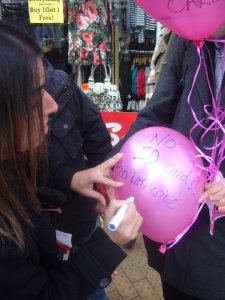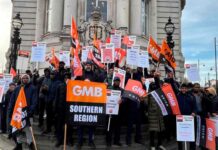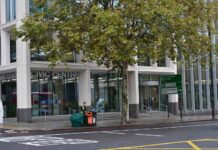
Not so long ago, parliamentary reform was little more than the pet project of a handful of dedicated reformists; now it’s the hot new topic. Data websites are leading the way to ensure accountability, and they are not the only ones interested in fixing the disconnect between local and national politics. Brixtonite and recent graduate Annie Quick, 23, is spearheading the London campaign for Power 2010
, a project aimed at bringing parliamentary reform to the top of the election agenda.
Power 2010 is funded by the Rowntree Foundation and it has been rolled out in three stages. From September to November 2009, over 4,500 submissions were made by members of the public with their ideas for democratic reform. These ideas were then distilled into a shortlist using a tool called the deliberative poll – 130 citizens selected by YouGov to represent the population met in London to discuss the submissions and selected 29 proposals, which were put to a public vote. An impressive 100,000 votes were cast and the five most popular ideas are now the basis for the Power 2010 ‘pledge’. They include proportional representation, an elected House of Lords and allowing only English MPs to vote on English laws.
The five ideas for reform are not a blueprint for change, but intended as triggers for debate. Anyone who backs “a majority of the ideas” can sign the pledge. By election time, Quick and her fellow campaigners want every MP to have signed. “I think it will work. We have already had 50 PPCs sign the pledge. The main parties are all working with us, getting their members to vote and providing volunteers. Lots of these parties aren’t necessarily for proportional representation, but they recognise that something is wrong and a debate needs to be had.”
Power 2010 was set up in the wake of the 2006 Power to the People Report, which found that millions had rejected electoral politics while remaining politically active in single issue campaigns and direct action. “The report made a splash and then nothing more happened”, explains Quick. “People don’t want to be told how to change. After the financial crisis, the expenses scandal and the Iraq Enquiry, people started to make the connection between their own lives and politics. I don’t think Power 2010 could have happened two years ago, but now most people have a reaction when you ask them about the state of politics. Power 2010 was established to allow people to have a debate about what real changes need to happen.”
Quick is confident that Power 2010 can make these ‘real’ changes. Others are not so. When I interviewed Richard Pope, he criticised projects like Power 2010 for using vast amounts of money to relatively little effect. “There are similar projects, such as Charter 88, who have got the implementation wrong because they built it either for people like them – internet nerds – or they spent all the money on advertising.” I put it to Quick that many of the people who voted will already have been converts to the cause, and probably “internet nerds” as well. “That criticism was fair for the submissions stage”, she admits.”But it is unfair for the voting stage. We spent literally hours on the streets talking about Power 2010 and talking people through the voting forms. 30% of the votes were from people we talked to in diverse areas. Few of these people would have found out about it independently. It’s about getting grass roots support. We’ve got a big Facebook presence, for instance.”
Quick has a nuanced view of democracy not so different from that of the data websites – it is about making information available for people to make their own choice. “I’m not sure that being representative is the point of democracy. People are ultimatley self-selecting. You need to do all you can to furnish them with the relevant information and publicise yourself, but ultimately you can’t force people who don’t want to be involved. It’s important to us to make our material and website accessible in terms of language and design.”
The main problem I have with Power 2010 is in its name. For the moment, the organisation is not looking beyond the 2010 General Election. Indeed, its current funding will run out a few months after the election. “We are manically busy with the election so it is hard to think about anything else at the moment, although there is a strong sense that something will come out of Power 2010”, says Quick. An electoral debate is all very well, but surely it is essential to think about how the debate can have legs after the election. Wild promises can be made in the heat of a campaign; the hard work comes in keeping politicians accountable to those promises. Perhaps that’s where The Straight Choice can help…



